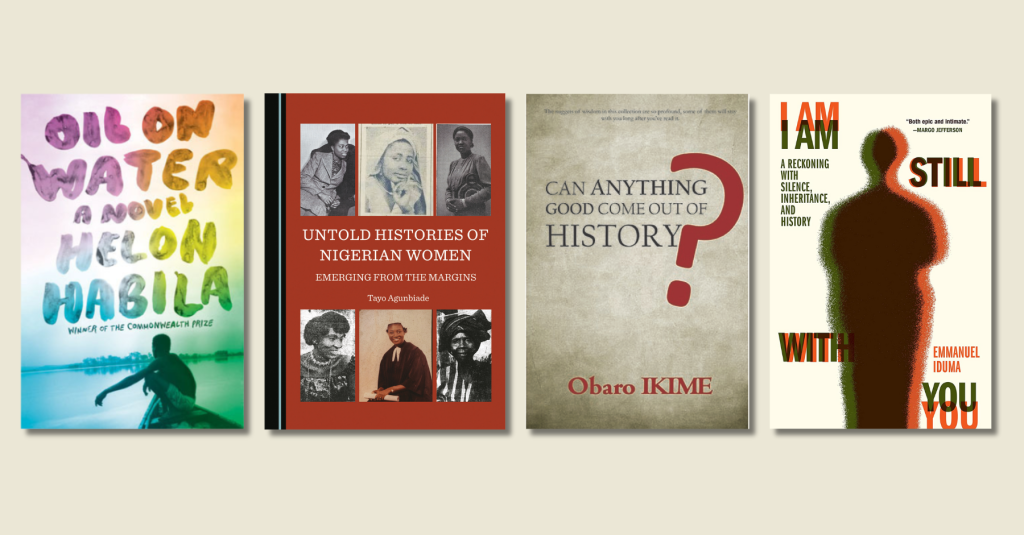
Whenever you buy a book from our online store, we may make a small commission which supports our work. Visit our online store here.
In 1977, the late professor of history, Obaro Ikime, delivered a lecture under the auspices of the Department of History at the University of Calabar. Titled ‘History and the Changing Cultures of Nigeria’, Ikime’s paper responded to the reservations expressed by Alhaji Shetima Ali Munguno, one of the community leaders who attended a 1976 meeting of the Academic Planning Committee of the National Universities Commission, which visited new Nigerian universities, including Maiduguri. At the time, Alhaji Munguno was pro-chancellor and chairman of council of the University of Calabar. In the meeting, Ikime wrote, Alhaji Munguno, ‘dwelt at length on the need to ensure that the University of Maiduguri reflected the culture of the people in whose locale it was situated.’ He also expressed horror at what he had seen at the University of Calabar, where students and teachers went about wearing ‘all sorts of trousers and high-heeled shoes.’ Alhaji Mungono hoped that ‘no such evil would afflict the University of Maiduguri.’
Professor Ikime found Alhaji Munguno’s disgust with staff and students’ dressing style to be ‘evidence of cultural intolerance, for it must be clear that the dress style of any group is tied up with the cultural influences to which that group has been exposed.’ For Professor Ikime, this incident—and the tendency of Nigerians to speak disparagingly about the values and cultural traits of fellow citizens from other groups—inspired his presentation. One of Nigeria’s greatest problems, he argued, is our ‘inadequate knowledge of history and the ways of life of the various groups or people that make up Nigeria.’
Hence, as Nigeria clocks 65, it is important to return to our history. In our latest book recommendation, we have compiled a list of essential books for anyone interested in Nigerian history and looking for where to begin. Beyond covering Nigeria’s broader past, these works explore events and figures such as the Nigerian Civil War, women’s protests and activism, the effects of oil exploration, and other pivotal issues that have shaped the nation since independence.
Read our recommendations below.

THE TROUBLE WITH NIGERIA
AUTHOR: cHINUA ACHEBE
GENRE: NON-Fiction
‘Published 40 years ago, The Trouble with Nigeria by Chinua Achebe recognizes the principal drawback Nigeria faces to be a failure in leadership. According to Achebe, Nigeria was the way it was because Nigerian leaders were unwilling or unable to lead by personal example. He wrote, “Nigeria can change today if she discovers leaders who have the will, the ability and the vision” to bring about the change the country needs. Achebe does not stop at making this seemingly simplistic point. He proceeds to draw out nuances that show how all the apparent setbacks to growth that Nigeria faces as a nation only exist because the leaders in the country could not rise to the occasion required by their position and office. It is remarkable that 40 years later, the problems he found to be the causes of malaise Nigeria battled with, still troubles the country,’ Ernest Nweke writes in a review commemorating the 40th anniversary of Achebe’s book.

GOVERNANCE AND POLITICS IN POST-MILITARY NIGERIA
EDITOR: SAID ADEJUMOBI
GENRE: NON-fiction
Edited by Said Adejumobi, this book examines the progress made in Nigeria since the return to democratic rule in 1999 and the prospects of democratic consolidation in the country. After 16 years under continuous military governance, Nigeria’s aspiration for a democratic structure was forsaken. This collection examines how democratic and developmental governance has again been denied and what must be done to chart a new and sustained course. The scholars who contributed chapters to this book explore various themes, including party politics, the electoral process in Nigeria and more.
Cassava Republic Press is proud to announce the launch of their inaugural $20,000 Global Black Women’s Non-Fiction Manuscript Prize dedicated to exceptional works by Black women. Deadline: 30th June 2024. Learn more here.

UNTOLD HISTORIES OF NIGERIAN WOMEN
AUTHOR: TAYO AGUNBIADE
GENRE: NON-fiction
This book is a curation of insightful and engaging narrations aimed at freeing women from the margins of Nigeria’s history. It chronicles their protest movements against colonial administrations, including petitions on taxation and food price controls. It details a string of remarkable political landmarks which highlight women’s historical credentials as nationalists, as well as their voice in early male-dominated legislative institutions. It also narrates more contemporary episodes in women’s resistance against oil exploitation, environmental pollution and anger over the mass abduction of schoolgirls. This timely preservation of the voice and agency of Nigerian women from a wide variety of colonial and contemporary documents will benefit readers interested in African history and gender and women’s studies.

OIL ON WATER
Author: HELON HABILA
Genre: FIction
In the oil-rich and environmentally devastated Nigerian Delta, the wife of a British oil executive has been kidnapped. Two journalists—a young upstart, Rufus, and a once-great, now disillusioned veteran, Zaq—are sent to find her. In a story rich with atmosphere and taut with suspense, Oil on Water explores the conflict between idealism and cynical disillusionment in a journey full of danger and unintended consequences.
As Rufus and Zaq navigate polluted rivers flanked by exploded and dormant oil wells, in search of ‘the white woman’, they must contend with the brutality of both government soldiers and militants. Assailed by irresolvable versions of the ‘truth’ about the woman’s disappearance, dependent on the kindness of strangers of unknowable loyalties, their journalistic objectivity will prove unsustainable, but other values might yet salvage their human dignity. The story explores the environmental and human toll of oil exploitation, and the political unrest it fuels, offering a gripping narrative on corruption and activism in Nigeria.

I AM STILL WITH YOU
AUTHOR: EMMANUEL IDUMA
GENRE: NON-FICTION
After spending many years in New York, Emmanuel Iduma recounts his journey back to Nigeria, where he was raised. He travelled home to learn the fate of his uncle Emmanuel, his namesake, who disappeared in the Nigerian Civil War in the late 1960s. Iduma made numerous stops throughout the former Biafra territory in search of the truth, reuniting with family members to elicit their memories, snooping through university libraries to covertly photocopy materials, and stopping by abandoned monuments. He concluded that if he could comprehend his father’s grief at losing a sibling in the war, he might be able to learn how to grieve his own deceased father.

can ANYTHING GOOD COME OUT OF HISTORY
authOR: OBARO IKIME
GENRE: NON-FICTION
Can Anything Good Come Out of History? is a collection of 14 lectures and papers on Nigerian history from 1977 to 2013. The lectures in this book demonstrates that history is not the useless discipline it is so often portrayed to be in our nation: that Nigeria and all her component entities, and the loyalties attached to them are products of history; that whether we realize it or not, it is history that provides that understanding of our country’s multifarious peoples and their cultures which is so crucial for peaceful co-existence.

Be(COM)ING NIGERIAN
authOR: ELNATHAN JOHN
GENRE: NON-FICTION
Elnathan John intrigued Nigerian readers in 2019 when his book, Be(com)ing Nigerian: A Guide, was published. Be(com)ing Nigerian is a 150-page satire of the Nigerian society. Described as ‘an affecting, unrestrained and satirical guide to the Nigerians you will meet at home and abroad, or on your way to hell and to heaven’, it takes on the well-known Nigerian religious hypocrisy, politics, business and even Nigerians themselves. Through wit and humour, John paints a picture of Nigeria and its citizens that will make you shake your head in despair but also double over in laughter. Read our essay on this book⎈
Editor’s Note: An earlier version of this post listed seven books and erroneously included Half of a Yellow Sun. This book has now been removed from the list.





